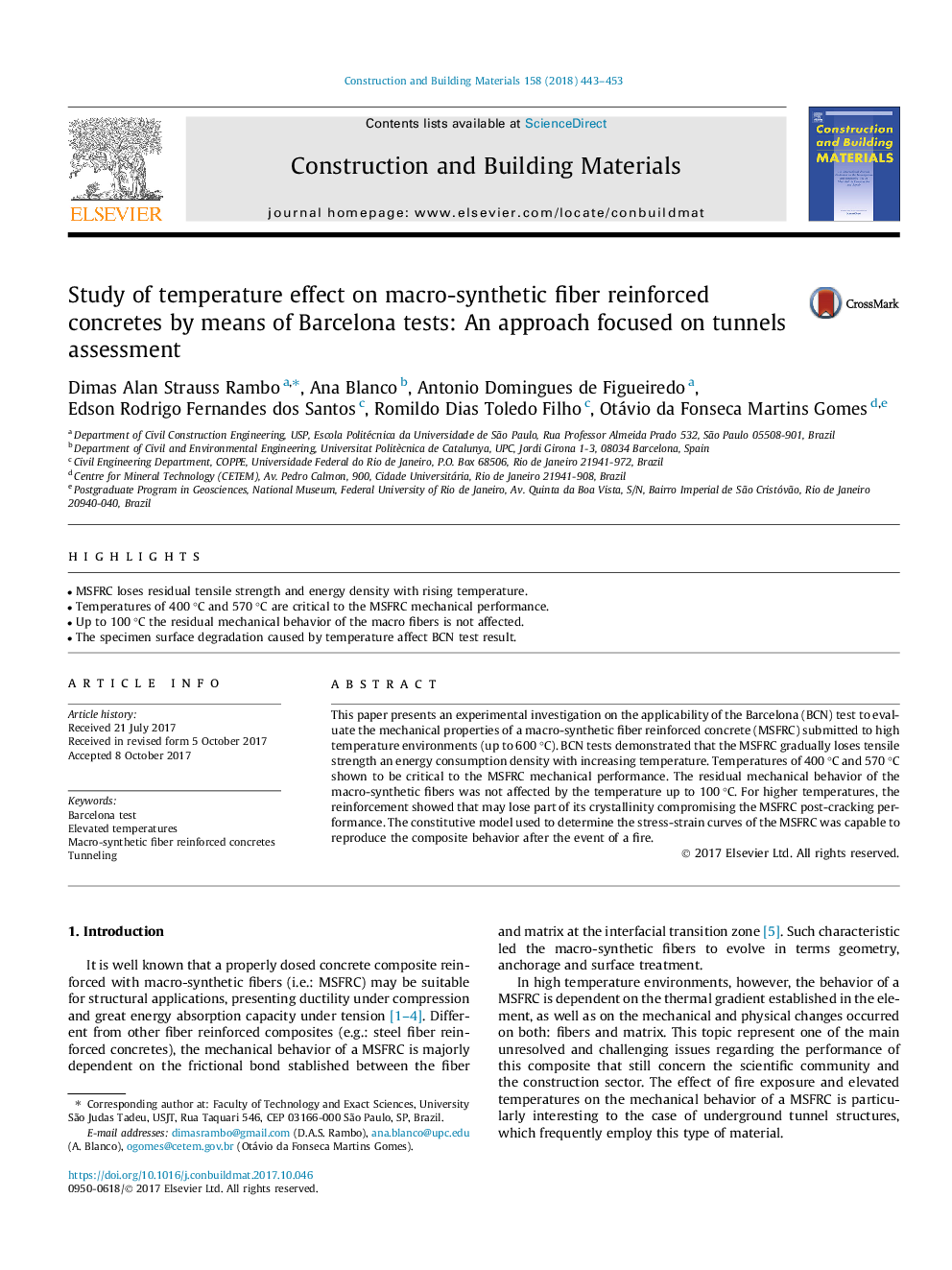| Article ID | Journal | Published Year | Pages | File Type |
|---|---|---|---|---|
| 4912615 | Construction and Building Materials | 2018 | 11 Pages |
â¢MSFRC loses residual tensile strength and energy density with rising temperature.â¢Temperatures of 400 °C and 570 °C are critical to the MSFRC mechanical performance.â¢Up to 100 °C the residual mechanical behavior of the macro fibers is not affected.â¢The specimen surface degradation caused by temperature affect BCN test result.
This paper presents an experimental investigation on the applicability of the Barcelona (BCN) test to evaluate the mechanical properties of a macro-synthetic fiber reinforced concrete (MSFRC) submitted to high temperature environments (up to 600 °C). BCN tests demonstrated that the MSFRC gradually loses tensile strength an energy consumption density with increasing temperature. Temperatures of 400 °C and 570 °C shown to be critical to the MSFRC mechanical performance. The residual mechanical behavior of the macro-synthetic fibers was not affected by the temperature up to 100 °C. For higher temperatures, the reinforcement showed that may lose part of its crystallinity compromising the MSFRC post-cracking performance. The constitutive model used to determine the stress-strain curves of the MSFRC was capable to reproduce the composite behavior after the event of a fire.
